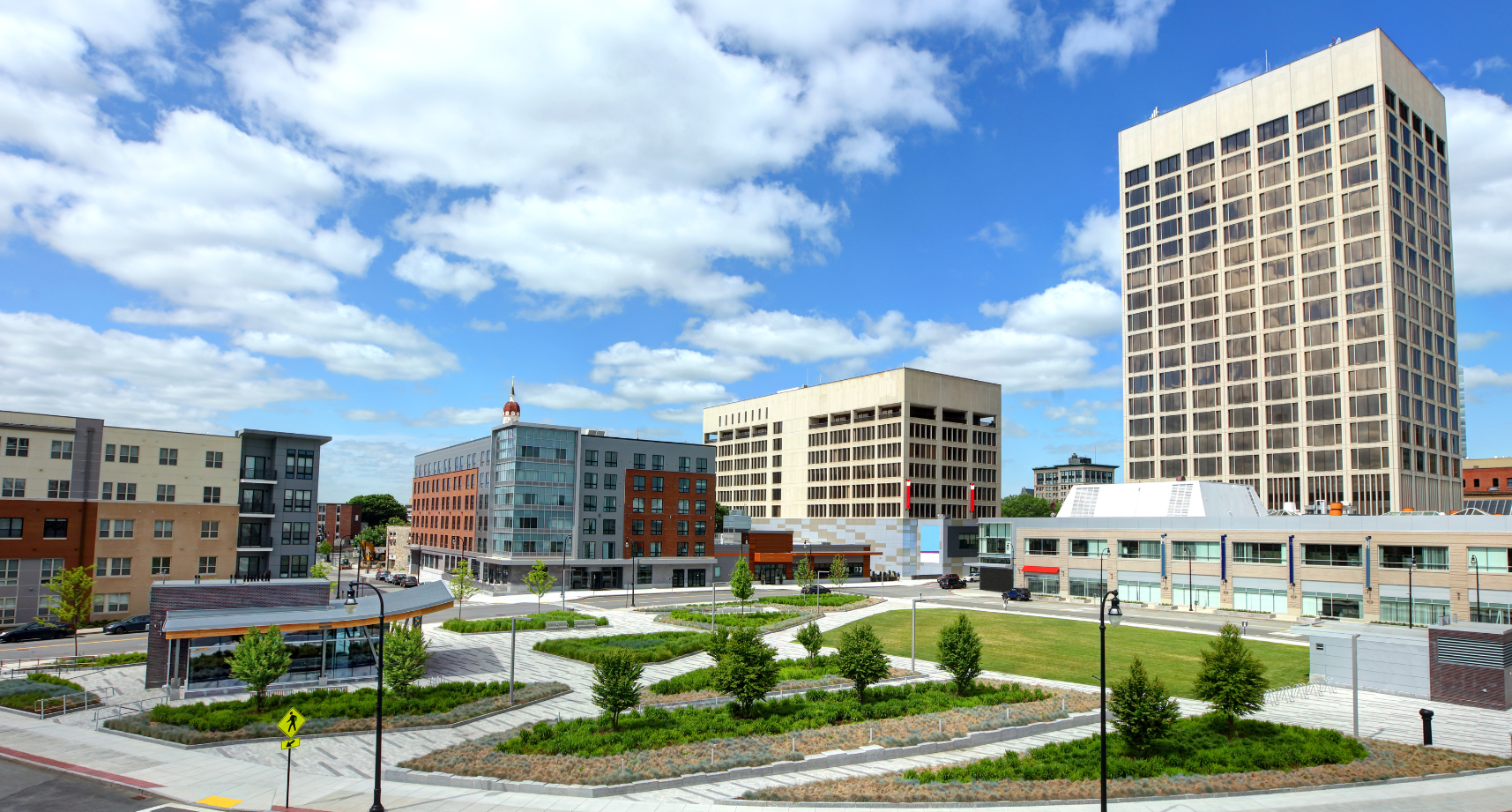Inclusionary Zoning
In the Spring of 2023, the Worcester City Council approved the city’s first Inclusionary Zoning Ordinance.
The Inclusionary Zoning Ordinance (IZ) outlines that new developments with 12 or more units must reserve 15% of units for renters/buyers who earn 80% of the area medium income, 10% for those who earn 60% AMI, or a combination thereof. There is also an option to forgo construction of income restricted if developers pay 3% of the total construction value of the project to the Affordable Housing Trust Fund, which funds affordable housing developments.
Problem
 In recent years, Massachusetts has not produced enough housing of all types – apartments, condos, single-family homes – to accommodate its growing population and economy. Worcester has been no exception. The production of new housing will alleviate upward price pressure and improve the quality of housing. The stress on the housing market has increased housing prices across the board. Worcester was recently ranked the #1 most competitive housing market in the United States due to a lack of housing supply, with rents and home prices rising over the past several years.
In recent years, Massachusetts has not produced enough housing of all types – apartments, condos, single-family homes – to accommodate its growing population and economy. Worcester has been no exception. The production of new housing will alleviate upward price pressure and improve the quality of housing. The stress on the housing market has increased housing prices across the board. Worcester was recently ranked the #1 most competitive housing market in the United States due to a lack of housing supply, with rents and home prices rising over the past several years.
Solution
The Chamber supported the city’s proposed IZ ordinance, passed by the city council on April 11. The ordinance, drafted by the City Manager’s office in consultation with community leaders, developers, IZ experts, attorneys, and other municipalities with IZ, strikes a balance between mandatory measures and reasonable incentives for affordable housing production.
IZ is one part of a multi-policy toolbox to combat the housing crisis. The overarching solution is constructing more housing of all types, while IZ can help create modest amounts of affordable housing in majority market-rate developments. When IZ is combined with investments in rental assistance and first-time homeownership, the policy can help lower-income households who are facing unthinkable circumstances like displacement. City Hall has implemented and is expanding a wide array of programs to help the lowest-income households in the city.
IZ helps create mixed-income communities which create a stronger, more diverse, and more resilient economy. The city should strive to provide as many opportunities as possible for all to enjoy the benefits of recent economic development in Worcester.
The Purpose of IZ
Inclusionary zoning (IZ) is a commonly employed tool in Massachusetts communities looking to add modest amounts of income-restricted workforce housing to market-rate developments. It is a market-based solution that relies on the construction of new market-rate developments to deliver more affordable housing. Therefore, the most effective IZ policies do not create obstacles to development. Worcester has struck an appropriate balance between mandatory measures and incentives to ensure this.
Inclusionary zoning is not intended as a tool to provide public housing or extremely low-income housing, where other policies such as the construction of new public housing units and increasing affordable housing development tax credits are more effective. In other communities, IZ helps provide income-restricted units for households making 60-120% of the area median income (AMI), the so-called “workforce housing” income range. Many of these 10,000 households in Worcester are stuck in the “missing middle” of housing affordability, where they do not qualify for public housing or Section 8 but cannot afford many market rates. Professions that typically qualify for workforce affordable housing include:
| Health care assistants | Teachers | Social workers |
| Transportation workers | Retail employees | Manufacturing employees |

